Social Skills in Children: How to Help Children Acquire Them
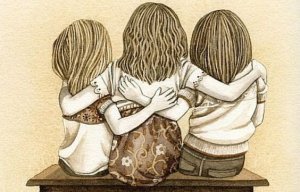

Written and verified by the psychologist Gema Sánchez Cuevas
Developing the right social skills in children will help their relationships and interactions be much more positive. Today, we’ll talk about the core of social and emotional learning, right where empathy and assertiveness meet.
Let’s ask a simple question: “How do our children really learn?” As many studies on social psychology tell us and even as Albert Bandura himself demonstrated in his experiments, children learn through observation, imitation, and continuous interaction.
Social skills can be somewhat complex. They’re a combination of feelings, beliefs, values, and a whole repertoire of strategies the child uses to survive and complete their social and emotional journey in a healthy way.
We call all these processes “sociability,” and they’re the foundation of a child’s life. Depending on the quality of learning and their life experiences, the child’s perceptions and attributions – in addition to socio-emotional learning – should form into healthy and effective social skills. On the contrary, they could develop shortcomings that tend to be very problematic when they reach pre-adolescence.
Social skills in children today
On the other hand, something experts in child psychology tell us is that the world today is much more complex for children than it was for their parents. The media, new technologies, and constantly changing rules in our society are confusing for children.
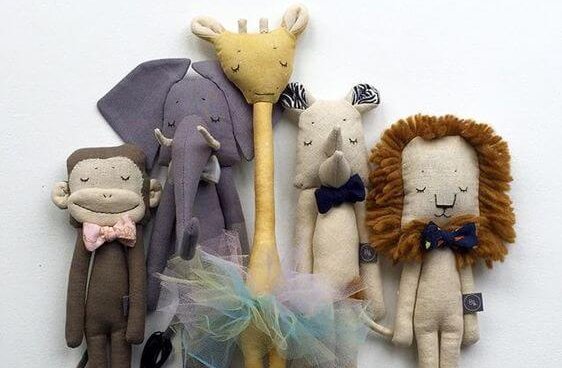
Ways of relating and even meeting people have changed. Social networks and messaging services are more dynamic. They offer new opportunities, they’re faster, and they lack control mechanisms. Sometimes they’re quite dangerous.
It’s good for a child’s social development to cover diverse areas, situations, and scenarios. We must give them enough tools so they can function effectively in an increasingly intricate social environment. It’s a broader social environment, but it’s also valuable, after all. That’s why social skills in children are so important.
Social skills in children: how they develop
One of the most effective strategies for teaching social skills in children is to create a “social language” early on. We’re talking about of a kind of easily understood, basic yet effective language that even small children around the age of 2 years will be able to understand.
Remember that this age is a decisive moment in a child’s development. This is where autonomy begins. They define their personality and are much more receptive to things happening around them.
A social language that will foster early development of social skills in children is based on the following:
- Learning active listening. We can’t talk while the other person is saying something; we must respect their turn to speak. This is difficult for them because their self-control is still very limited. The best way to teach them is to lead by example. For instance, if we don’t interrupt them, they will learn not to interrupt us.
- Children must learn to show gratitude, to know when and how to apologize, and to say “please.” Let’s teach them, either implicitly or explicitly, the difference between a request and a demand.
- Good social language also includes different “wisdom.” It’s positive reinforcement, knowing how to say “thank you,” and being tolerant. It’s also about knowing how to share, recognizing when others do something well, and when we’re wrong.
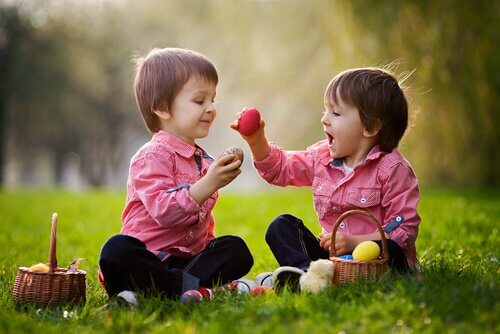
Help them form a positive image of themselves
Teaching our children how to value themselves, love each other, and defend their rights and identity is to invest in their quality of life and give them a better future. However, how do we do it? Sometimes we’re so concerned about their grades, making sure that they can do math and are good in English, that we completely neglect the most essential thing of all: making sure they have a positive self-image.
Keys to promoting good self-esteem in children
- Be an example: work on your own self-esteem.
- Spend quality time with your children. It’s not just about being “present,” but about your presence being encouraging and inspiring.
- Give them opportunities. A child who feels competent develops good self-esteem every day.
- Avoid labels at all costs. Don’t compare them with other children or their siblings or any other person. Your child is unique, valuable, and capable of doing incredible things.
- Always appreciate their efforts. Also, before resorting to punishment or negative criticism, teach them the right way to do things.
“Childhood has its own way of seeing, thinking, and feeling, and nothing is more foolish than to try to substitute ours for theirs.”-Jean-Jacques Rousseau-
Assertiveness: the key to social skills in children
Teaching our children the art of assertiveness should be one of our highest priorities as parents or educators. Assertiveness is related to self-esteem, but it goes a little further. It’s the ability to defend and claim your rights.
It’s understandable that the person in front of me also deserves the same respect that I do. After all, it’s the healthiest foundation of social skills and the shoes that let us walk with confidence in any setting, whether at school, home, or work.
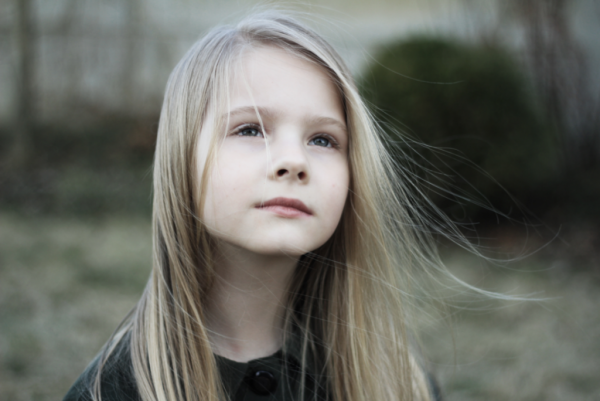
Tips for developing assertiveness in children
We must give children the tools they need to learn to manage their emotions. Only then will they realize that they must control their anger, for example, in order to express frustration, disappointment, or conflict well.
- Support their initiatives. If they feel secure, they’ll feel comfortable when it comes to getting involved in new activities and shooting for new dreams. It’s very healthy for children and adolescents to perceive themselves as worthy and capable of having their own goals. Also, it doesn’t matter if later they fail or make mistakes. They learn from these, and it actually helps them be assertive.
- Encourage assertiveness from an early age in different scenarios. Let them buy the subway ticket or help you buy something at the store. Encourage them to go play with children they don’t know at the park, to ask their teacher for help when they don’t understand something…
- Also, it can be helpful to give them “scripts” to follow if they want to protest or defend themselves against something that doesn’t seem fair. To do this, we should foster constant democratic dialogue at home. Give everyone the right to speak, to be heard, and to be respected.
Learning to live together and enjoy social relationships
There are few gifts as valuable as enjoying childhood with our first buddies and partners in crime. Encouraging friendship and making sure they’re good ones is also our responsibility.
- We must be models of respectful relationships, where cooperation, respect, empathy, and mutual understanding will help them build good friendships.
- Likewise, to learn how to live in harmony with their peers and other people, they must learn how to identify and react to problems. For example, what to do when faced with aggressive language, mockery, and criticism.
- On the other hand, as parents or teachers, we must also support the friendships children build. We must be that person who’s always close by if they need to talk about a problem or have a question about their friendship.
Learning to solve conflicts
Life isn’t clear-cut, it isn’t easy. Sometimes it hurts and is tremendously confusing. If we could, we would kick every difficulty, every problem, and possible conflict that may appear in our children’s lives to the curb. However, if we do so, we wouldn’t be educating a child to live in society, we would be modeling a sterile and unreal environment.
Since they will come face-to-face with human conflicts at some point in their lives, it’s necessary to give them strategies so that some good always comes out of bad situations. The following are some key measures:
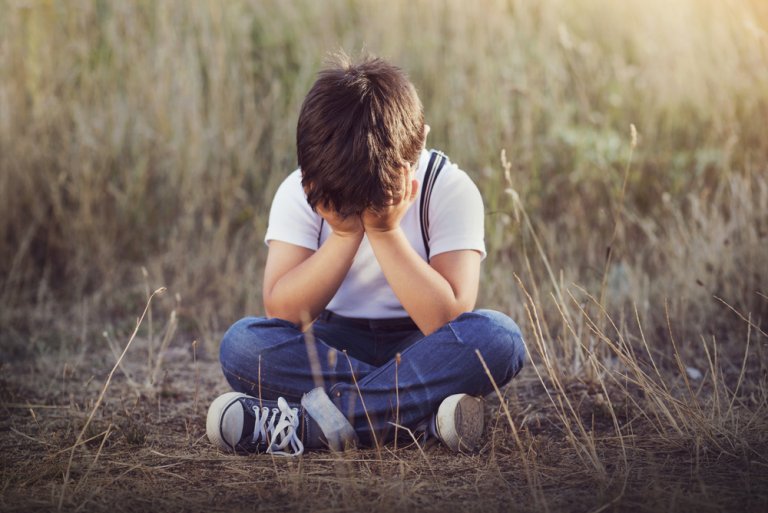
- Help them develop good self-confidence. They must feel safe when expressing, acting, interacting with someone who disagrees with them.
- Encourage a non-violent attitude. Aggression, yelling, or any type of expression that involves violence doesn’t solve anything. On the contrary, it increases it.
- Give them some easy-to-follow guidelines to help them control their emotions.
- Also, the child must learn skills like assertiveness, tolerance, and good decision-making over time in order to feel more effective when resolving conflicts.
- On the other hand, skills such as a sense of humor or creativity are very effective tools for resolving conflicts and finding more enriching outlets for emotions.
To conclude, one thing we should also keep in mind about social skills in children is that we don’t usually give too much importance to these skills in early childhood. But then, in the last years of elementary school – and especially as a teenager – problems with socialization, suffering, and conflicts suddenly appear.
Not all children are equal, some have greater self-control skills, others have greater problems communicating assertively, and others see violence as the only way to express what they feel.
Developing good social skills in children isn’t something that’s given to them like vitamins or a textbook. It’s about learning to intuit needs, and for that you need to work on all social areas. For that reason, it’s important for families to be in contact with teachers, and for them to promote the development of social skills in children. We need to be more sensitive to their inner world where if they lack something, they may express it in the least appropriate way…
Social skills in children are vital. Let’s give them the importance they deserve.
Bibliography
Moraleda, M (2009). Comportamientos sociales hábiles en la infancia y la adolescencia. Promolibro.
Monjas, I. M (2010). Cómo promover la convivencia en los niños: claves para la asertividad y las habilidades sociales. Madrid: CEPE.
Beudoin, N. M (2009). Cada niño puede ser millonario en habilidades sociales. Barcelona: EOS.
Developing the right social skills in children will help their relationships and interactions be much more positive. Today, we’ll talk about the core of social and emotional learning, right where empathy and assertiveness meet.
Let’s ask a simple question: “How do our children really learn?” As many studies on social psychology tell us and even as Albert Bandura himself demonstrated in his experiments, children learn through observation, imitation, and continuous interaction.
Social skills can be somewhat complex. They’re a combination of feelings, beliefs, values, and a whole repertoire of strategies the child uses to survive and complete their social and emotional journey in a healthy way.
We call all these processes “sociability,” and they’re the foundation of a child’s life. Depending on the quality of learning and their life experiences, the child’s perceptions and attributions – in addition to socio-emotional learning – should form into healthy and effective social skills. On the contrary, they could develop shortcomings that tend to be very problematic when they reach pre-adolescence.
Social skills in children today
On the other hand, something experts in child psychology tell us is that the world today is much more complex for children than it was for their parents. The media, new technologies, and constantly changing rules in our society are confusing for children.

Ways of relating and even meeting people have changed. Social networks and messaging services are more dynamic. They offer new opportunities, they’re faster, and they lack control mechanisms. Sometimes they’re quite dangerous.
It’s good for a child’s social development to cover diverse areas, situations, and scenarios. We must give them enough tools so they can function effectively in an increasingly intricate social environment. It’s a broader social environment, but it’s also valuable, after all. That’s why social skills in children are so important.
Social skills in children: how they develop
One of the most effective strategies for teaching social skills in children is to create a “social language” early on. We’re talking about of a kind of easily understood, basic yet effective language that even small children around the age of 2 years will be able to understand.
Remember that this age is a decisive moment in a child’s development. This is where autonomy begins. They define their personality and are much more receptive to things happening around them.
A social language that will foster early development of social skills in children is based on the following:
- Learning active listening. We can’t talk while the other person is saying something; we must respect their turn to speak. This is difficult for them because their self-control is still very limited. The best way to teach them is to lead by example. For instance, if we don’t interrupt them, they will learn not to interrupt us.
- Children must learn to show gratitude, to know when and how to apologize, and to say “please.” Let’s teach them, either implicitly or explicitly, the difference between a request and a demand.
- Good social language also includes different “wisdom.” It’s positive reinforcement, knowing how to say “thank you,” and being tolerant. It’s also about knowing how to share, recognizing when others do something well, and when we’re wrong.

Help them form a positive image of themselves
Teaching our children how to value themselves, love each other, and defend their rights and identity is to invest in their quality of life and give them a better future. However, how do we do it? Sometimes we’re so concerned about their grades, making sure that they can do math and are good in English, that we completely neglect the most essential thing of all: making sure they have a positive self-image.
Keys to promoting good self-esteem in children
- Be an example: work on your own self-esteem.
- Spend quality time with your children. It’s not just about being “present,” but about your presence being encouraging and inspiring.
- Give them opportunities. A child who feels competent develops good self-esteem every day.
- Avoid labels at all costs. Don’t compare them with other children or their siblings or any other person. Your child is unique, valuable, and capable of doing incredible things.
- Always appreciate their efforts. Also, before resorting to punishment or negative criticism, teach them the right way to do things.
“Childhood has its own way of seeing, thinking, and feeling, and nothing is more foolish than to try to substitute ours for theirs.”-Jean-Jacques Rousseau-
Assertiveness: the key to social skills in children
Teaching our children the art of assertiveness should be one of our highest priorities as parents or educators. Assertiveness is related to self-esteem, but it goes a little further. It’s the ability to defend and claim your rights.
It’s understandable that the person in front of me also deserves the same respect that I do. After all, it’s the healthiest foundation of social skills and the shoes that let us walk with confidence in any setting, whether at school, home, or work.

Tips for developing assertiveness in children
We must give children the tools they need to learn to manage their emotions. Only then will they realize that they must control their anger, for example, in order to express frustration, disappointment, or conflict well.
- Support their initiatives. If they feel secure, they’ll feel comfortable when it comes to getting involved in new activities and shooting for new dreams. It’s very healthy for children and adolescents to perceive themselves as worthy and capable of having their own goals. Also, it doesn’t matter if later they fail or make mistakes. They learn from these, and it actually helps them be assertive.
- Encourage assertiveness from an early age in different scenarios. Let them buy the subway ticket or help you buy something at the store. Encourage them to go play with children they don’t know at the park, to ask their teacher for help when they don’t understand something…
- Also, it can be helpful to give them “scripts” to follow if they want to protest or defend themselves against something that doesn’t seem fair. To do this, we should foster constant democratic dialogue at home. Give everyone the right to speak, to be heard, and to be respected.
Learning to live together and enjoy social relationships
There are few gifts as valuable as enjoying childhood with our first buddies and partners in crime. Encouraging friendship and making sure they’re good ones is also our responsibility.
- We must be models of respectful relationships, where cooperation, respect, empathy, and mutual understanding will help them build good friendships.
- Likewise, to learn how to live in harmony with their peers and other people, they must learn how to identify and react to problems. For example, what to do when faced with aggressive language, mockery, and criticism.
- On the other hand, as parents or teachers, we must also support the friendships children build. We must be that person who’s always close by if they need to talk about a problem or have a question about their friendship.
Learning to solve conflicts
Life isn’t clear-cut, it isn’t easy. Sometimes it hurts and is tremendously confusing. If we could, we would kick every difficulty, every problem, and possible conflict that may appear in our children’s lives to the curb. However, if we do so, we wouldn’t be educating a child to live in society, we would be modeling a sterile and unreal environment.
Since they will come face-to-face with human conflicts at some point in their lives, it’s necessary to give them strategies so that some good always comes out of bad situations. The following are some key measures:

- Help them develop good self-confidence. They must feel safe when expressing, acting, interacting with someone who disagrees with them.
- Encourage a non-violent attitude. Aggression, yelling, or any type of expression that involves violence doesn’t solve anything. On the contrary, it increases it.
- Give them some easy-to-follow guidelines to help them control their emotions.
- Also, the child must learn skills like assertiveness, tolerance, and good decision-making over time in order to feel more effective when resolving conflicts.
- On the other hand, skills such as a sense of humor or creativity are very effective tools for resolving conflicts and finding more enriching outlets for emotions.
To conclude, one thing we should also keep in mind about social skills in children is that we don’t usually give too much importance to these skills in early childhood. But then, in the last years of elementary school – and especially as a teenager – problems with socialization, suffering, and conflicts suddenly appear.
Not all children are equal, some have greater self-control skills, others have greater problems communicating assertively, and others see violence as the only way to express what they feel.
Developing good social skills in children isn’t something that’s given to them like vitamins or a textbook. It’s about learning to intuit needs, and for that you need to work on all social areas. For that reason, it’s important for families to be in contact with teachers, and for them to promote the development of social skills in children. We need to be more sensitive to their inner world where if they lack something, they may express it in the least appropriate way…
Social skills in children are vital. Let’s give them the importance they deserve.
Bibliography
Moraleda, M (2009). Comportamientos sociales hábiles en la infancia y la adolescencia. Promolibro.
Monjas, I. M (2010). Cómo promover la convivencia en los niños: claves para la asertividad y las habilidades sociales. Madrid: CEPE.
Beudoin, N. M (2009). Cada niño puede ser millonario en habilidades sociales. Barcelona: EOS.
All cited sources were thoroughly reviewed by our team to ensure their quality, reliability, currency, and validity. The bibliography of this article was considered reliable and of academic or scientific accuracy.
Moraleda, M (2009). Comportamientos sociales hábiles en la infancia y la adolescencia. Promolibro.
Monjas, I. M (2010). Cómo promover la convivencia en los niños: claves para la asertividad y las habilidades sociales. Madrid: CEPE.
Beudoin, N. M (2009). Cada niño puede ser millonario en habilidades sociales. Barcelona: EOS.
This text is provided for informational purposes only and does not replace consultation with a professional. If in doubt, consult your specialist.







